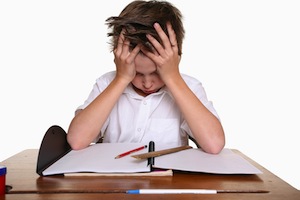Understanding Academic Performance Problems
can be devastating to a student, no matter how young or old he or she may be. There are several contributing factors that can lead to not only poor performance in school but can also have detrimental effects on other parts of a student’s life. Here is some information on some of these factors as well as potential solutions.
Causes of Academic Performance Problems
Students can struggle in school for a lot of reasons. He or she may have a learning disability or may not be getting proper attention from teachers. Students may have trouble in the classroom due to bullying, disinterest or confusion. Others may suffer from time management issues of procrastination.
These issues can begin in childhood and continue to linger throughout high school, college and even beyond. When parents and teachers are aware of academic performance problems early, they may be able to take steps to minimize the issue. However, if an academic concern is not properly addressed, it could lead to increased stress, frustration and anxiety that may potentially turn into aggression toward others.
Help for Academic Performance Problems
Fortunately, there are several avenues parents and students can take in an effort to improve performance in school. Tutoring or counseling could provide substantial benefits, as could special education programs. One particularly innovative approach is neurofeedback, which can train the brain to help a student improve cognitive abilities by improving coordination of the brain’s electrical activity. You can think of it as exercise for the brain, in much the same manner as physical exercise benefits the muscles.
If you would like to learn more about the benefits of neurofeedback in regard to academic performance problems, get in touch with the professionals at Northwest Biofeedback Center. Call us at 847-627-8164 (Des Plaines) or 224-334-3070 (Schaumburg) or contact us online.

